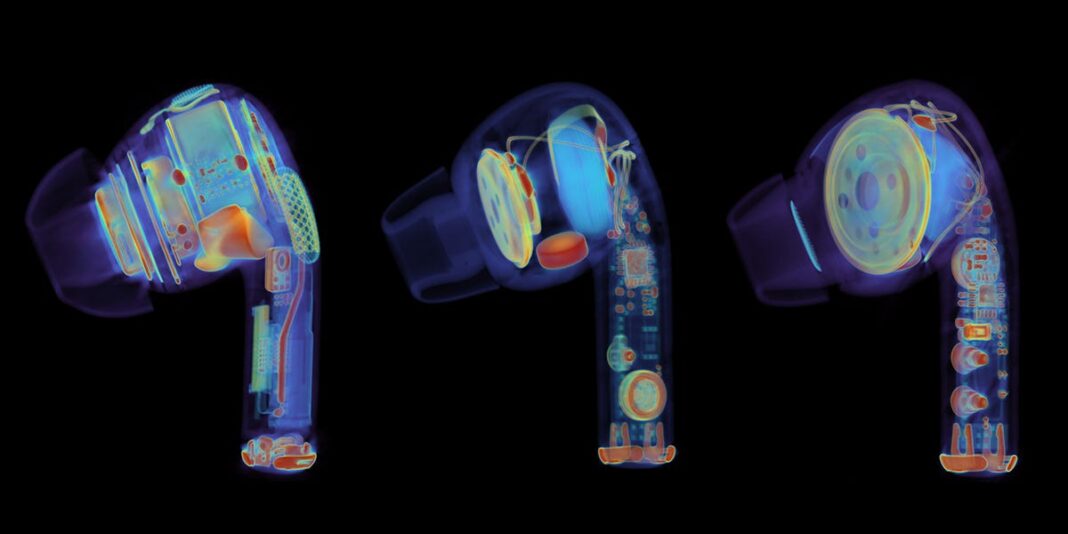- There are some major differences between genuine AirPods and knockoffs, especially with how they’re wired.
- Jon Bruner, head of marketing at Lumafield, shared some CT scans of real and counterfeit AirPods.
- Lumafield is a company that specializes in CT scanning equipment for engineers.
If you’ve ever gone through the pain of losing your AirPods before, you may have been tempted to skimp out on a cheaper knockoff.
But while a pair of knockoff AirPods may look similar enough on the outside, taking a look at the tech nestled behind the white plastic exterior reveals some major differences in quality.
Jon Bruner is the head of marketing at Lumafield, which is a computer hardware manufacturer that specializes in CT scanners for engineers to use on tech products. On Tuesday, Bruner shared some photos to X showing CT scans of a real pair of AirPods compared to some counterfeits
Jon Bruner/Lumafield
He wrote a thread pointing out some of the differences between the pairs.
Lumafield reviewed some key differences between the batteries, circuitry, and overall quality in the real and counterfeit AirPods. The real AirPods scanned were a pair of AirPods Pro, the most expensive of Apple’s wireless earbud lineup.
Jon Bruner/Lumafield
Real AirPods have tiny, button-cell batteries that keep the AirPods running efficiently while ensuring the earbuds are small enough to fit in most people’s ears, according to Lumafield. The fake AirPods, however, have lithium-ion pouch cell batteries, which could be less safe. The batteries determine the shape of the earbud, making it a bit more bulky and potentially less comfortable.
The wiring inside the genuine AirPods is also a lot more complex. Bruner said in a tweet that all of the circuitry is packed efficiently into the AirPod to ensure that the limited amount of space is all being utilized. The fake AirPods have “a lot less going on,” according to Bruner.
Jon Bruner/Lumafield
The fake AirPods also have fewer microphones, so you won’t get as good sound quality as you would with the real AirPods, according to Lumafield. Some other things Lumafield noted were limitations on wireless charging and a lack of magnets that secure the AirPods into the charging case.
Jon Bruner/Lumafield
So how can you ensure that your AirPods are legitimate? There are a few ways you can check whether or not your AirPods are real.
Users can go to Apple’s Check Coverage website and enter the AirPods’ serial number — located in the charging case. This website is used to check for product warranties. If the website says it’s unable to check coverage for the serial number you’ve entered, it probably means your pair is fake.
You can also look at the details of your AirPods. Check the packaging of the AirPods for any grammar or spelling mistakes. Your AirPods should also connect to the Find My app when you connect them to your phone.
Source link









